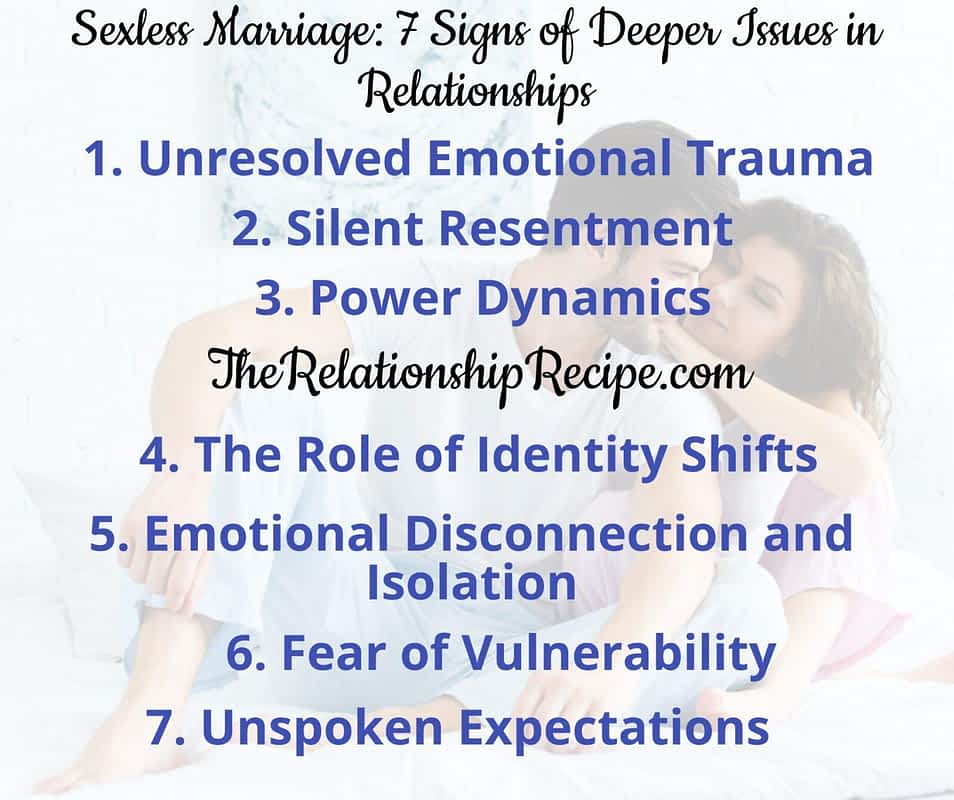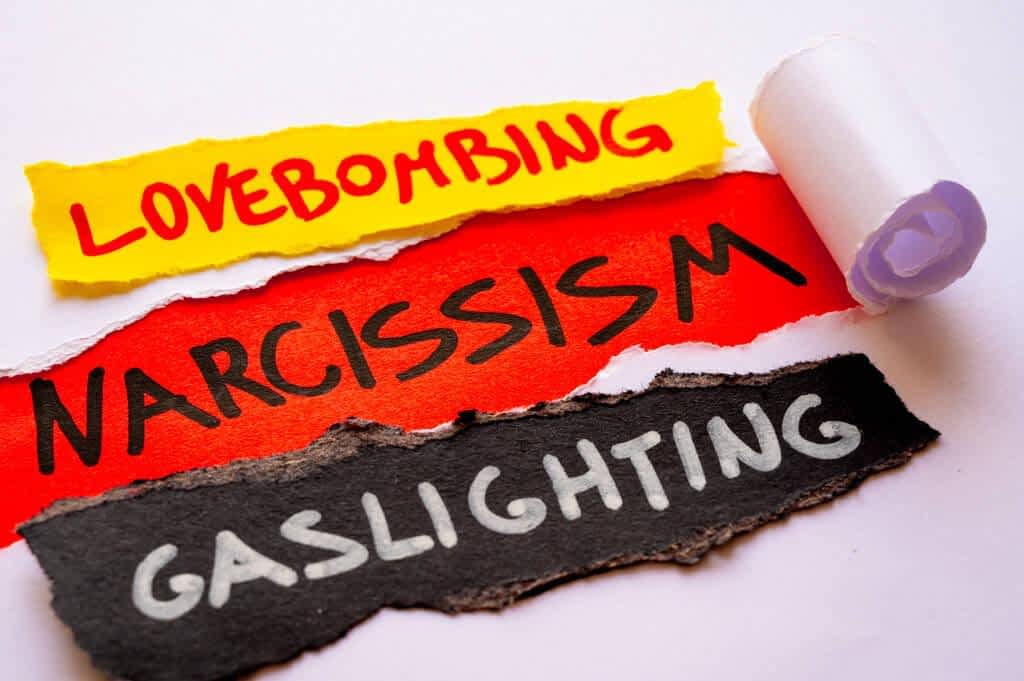7 Signs of Deeper Issues in Relationships With No Intimacy
When there’s no Intimacy, something’s off and it’s not Just “being tired.” Life’s chaotic. Work sucks up your energy, the dog pukes on the carpet, and you’re lucky if you remember what day it is.
But when the physical closeness flatlines in your relationship, it’s rarely just about being “too busy.” More often, it’s a red flag flapping in your face, and it’s pointing straight at the deeper issues in relationships with no intimacy.
This isn’t about mismatched libidos or someone not being in the mood. It’s emotional disconnection under the guise of exhaustion. Touch starvation in marriage doesn’t just happen overnight. Lack of physical closeness is a symptom, not the root. When your relationship feels more like roommates, or there’s a pattern of intimacy avoidance, you’re not just missing out on cuddles, you’re dealing with cracks in the foundation.
Ignoring that ache for connection won’t fix it. Let’s talk about what’s really going on.

💡Key Highlights:
- Why a lack of intimacy is rarely just about that, and what it might really be trying to tell you.
- The subtle ways emotional distance sneaks into a marriage without anyone realizing it.
- How past experiences quietly shape intimacy in the present, even when you think you’ve moved on.
- The hidden cost of unspoken expectations and how they can sabotage your marriage.
- What you’ll need to rebuild intimacy, and why it goes way beyond just fixing your bedroom life.
Recently I published an article about what a marriage lacking intimacy looks like, as opposed to one of a healthy, deeper connected union. The reason for this is that I want you to know that while this is more common than you may realize, there is still a lot of shame and embarrassment surrounding it.
So, my belief is that the issues in relationships with no intimacy aren’t being spoken about like it should be. I also wanted to compare and contrast a healthy, loving, relationship as opposed to one with signs of deeper issues that lead to the lack of intimacy. For some of us, it’s been such a long time that we’ve had any intimacy in our marriages, that a little reminder is sometimes in order.
I’ve been dealing with this in my own marriage, and have had to ask myself some serious questions about it. The reasons go beyond the usual excuses, and there are a lot of emotional factors as well.

Signs of Deeper Issues in Relationships With No Intimacy
💡Unresolved Emotional Trauma
One of the most overlooked reasons for touch starvation in marriage is emotional trauma. And no, it’s not always something the current partner did. Sometimes, it’s ghosts from the past, betrayal, neglect, or abuse, showing up uninvited and hijacking the present.
Trauma doesn’t make a big scene; it builds invisible walls. And when those walls go up, physical closeness can stop feeling safe and start feeling like a threat. Intimacy avoidance isn’t always a rejection of the current partner: it’s the nervous system going into lockdown. A person might pull away not out of coldness, but because their mind is stuck in defense mode.
The result is that the hugs fade, the touches vanish, and everything starts to feel transactional. That growing lack of physical closeness becomes more than just a rough patch; it’s a loud signal that there are deeper issues in a relationship with no intimacy quietly working their way into the foundation.

💡The Silent Resentment
Resentment creeps in quietly and makes itself at home. It’s the sighs. The eye rolls. The unreturned favors. The thousand tiny moments where one partner feels overlooked or taken for granted.
When someone starts feeling invisible, they don’t always say it out loud. Instead, they pull back and eventually stop reaching out. Especially when it comes to physical closeness. Not to punish, but to protect.
In these cases, intimacy avoidance isn’t the cause, it’s the symptom. A direct result of all that buried resentment bubbling just beneath the surface. Until that gets dragged into the daylight and dealt with, don’t expect that real closeness will magically show up.

💡Power Dynamics at Play
Here’s something people don’t talk about enough: physical intimacy is often tangled up with power dynamics. When things start feeling one-sided, financially, emotionally, or socially, that imbalance doesn’t just show up in arguments. It creeps into the bedroom too.
Sometimes, intimacy avoidance becomes a subtle form of push-back. A partner feeling controlled or dominated might not even realize they’re pulling away to reclaim a shred of autonomy. It’s less “I don’t want you,” and more “I need to feel like I still have a say in this relationship.”
Then there’s the flip side: the partner carrying the emotional weight of the relationship like it’s a second job. To them, closeness might start feeling like one more task on an already overcrowded to-do list, not something they can enjoy, let alone initiate.
Left unchecked, this push-and-pull over control can turn what was once a safe space into a low-key power struggle. Resulting in a growing lack of physical closeness where connection used to be.

💡The Role of Identity Shifts
Identity shifts aren’t just personal – they shake the whole relationship. Parenthood, aging, career upheavals, even growth that’s supposed to be “positive,” can rattle how we see ourselves… and how we see each other. And when that happens, things can get weird fast, including in the intimacy department.
Sometimes, the distance between partners isn’t really about the relationship itself. It’s about how one or both people feel inside their own skin. If you’re sitting there wondering, “Who am I really now?” it’s no surprise that showing up with confidence and emotional openness feels out of reach. You can’t offer closeness when you’re feeling like a stranger to yourself.
Add in the emotional fallout… maybe there’s been an empathic rupture, some unspoken hurt that you just can’t let go of, and you’ve got a perfect storm. Suddenly, the lack of physical closeness isn’t just a dry spell.

💡Emotional Disconnection and Isolation
We always hear that “communication is key”, but it’s not just about talking. It’s about how you talk. When real emotional connection fails, even the most casual conversation can start to feel like a chore. And that’s when touch starvation in marriage can start pointing to a sign of deeper issues.
When couples stop sharing their thoughts, hopes, frustrations, fears – that emotional distance grows too wide for physical intimacy to bridge. The lack of physical closeness isn’t the core problem here. It’s a symptom of something quieter but just as painful: emotional disconnection.
Rebuilding that closeness takes more than scheduling date nights. It takes patience, presence, and the willingness to see each other again: not just as roommates or co-parents, but as partners. Real intimacy, the kind that makes you feel emotionally safe and seen, has to come first.

💡Fear of Vulnerability
Real intimacy isn’t just about physical closeness; it’s letting someone really see you. And in a marriage where that no longer feels safe, pulling back from closeness can become less about disinterest and more about protection.
Fear has a sneaky way of shutting things down. Fear of being rejected, fear of not being enough, fear of being fully seen and judged for it. When that kind of fear creeps in, intimacy avoidance often follows in subtle ways. Discomfort. Excuses. A vague sense of something being “off.”
Suddenly, you’re not reaching for each other anymore. You’re just existing. The lack of physical closeness becomes the armor, and the relationship feels more like roommates.
And until those fears are brought into the light, gently, but honestly, true connection stays out of reach. You can’t be close to someone when you’re busy protecting yourself from them.

💡The Impact of Unspoken Expectations
Every relationship comes with a set of unspoken rules, those quiet, often invisible expectations we carry around without ever saying them out loud. Especially when it comes to intimacy. And when those expectations don’t get met (or even acknowledged), they don’t just disappear. They fester.
Maybe one partner thought there’d be more closeness. Or that it would feel more connected, more spontaneous, more something. But if those hopes stay bottled up, all that unspoken disappointment starts building walls instead of connection.
In this case, the lack of physical closeness isn’t the actual problem – it’s the symptom. A quiet consequence of mismatched expectations and missed conversations.
If you never say what you need, don’t be shocked when you don’t get it.

Final Thoughts on Issues in Relationships With No Intimacy
A marriage lacking physical closeness usually isn’t just about the absence of intimacy itself. More often, it’s a signal that something bigger is going on beneath the surface. It might be unresolved trauma, quiet resentment, power struggles, shifts in identity, emotional distance, fear of opening up, or unmet expectations left unspoken.
Tackling these deeper problems calls for honest conversations, real empathy, and the courage to face the uncomfortable truths that couples often try to ignore.
Thank you for reading this post, don't forget to subscribe!







